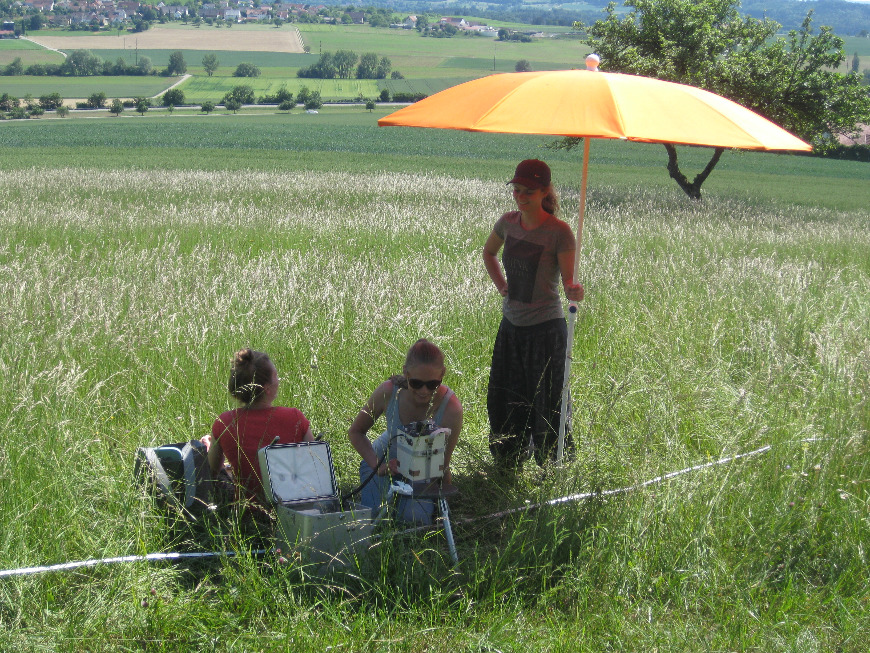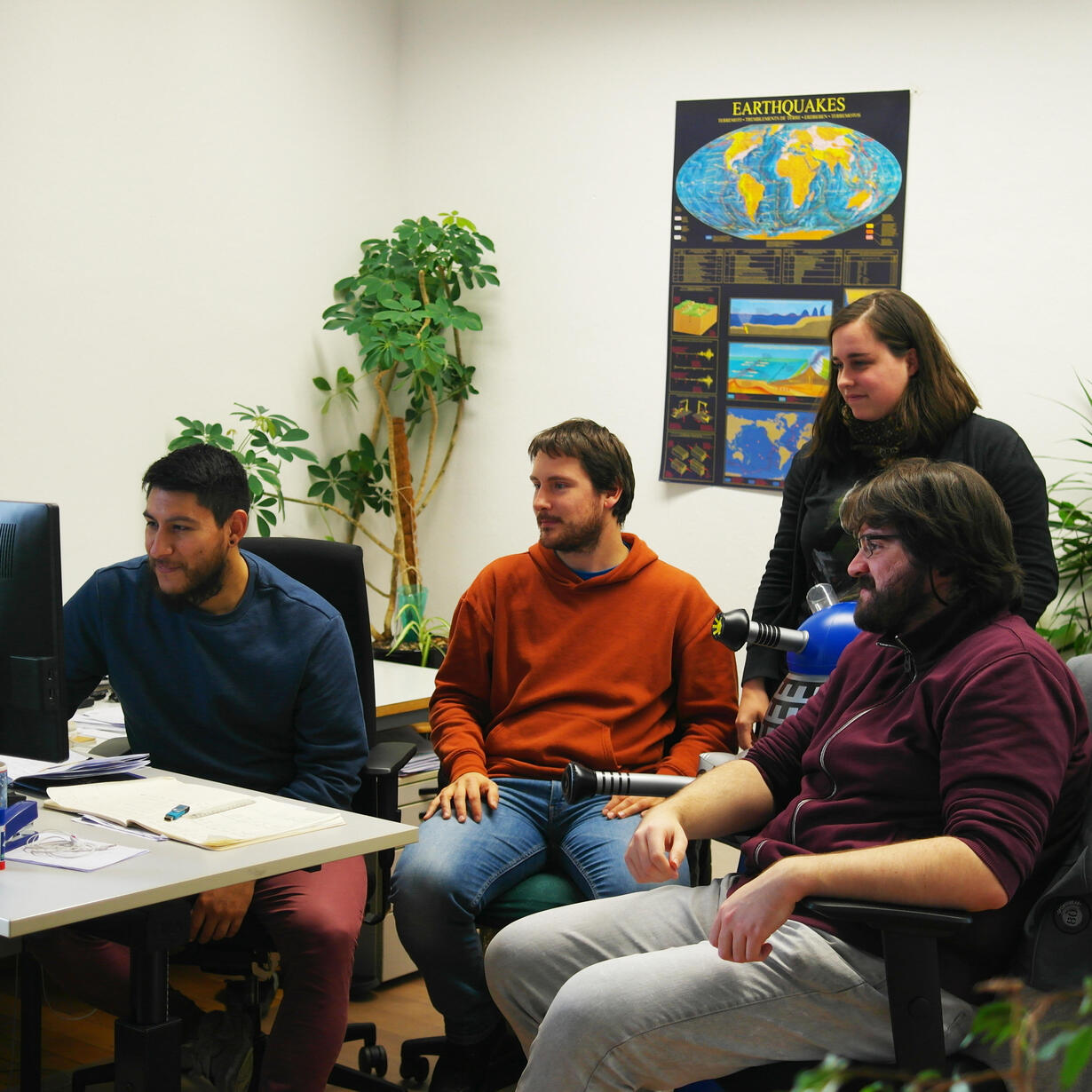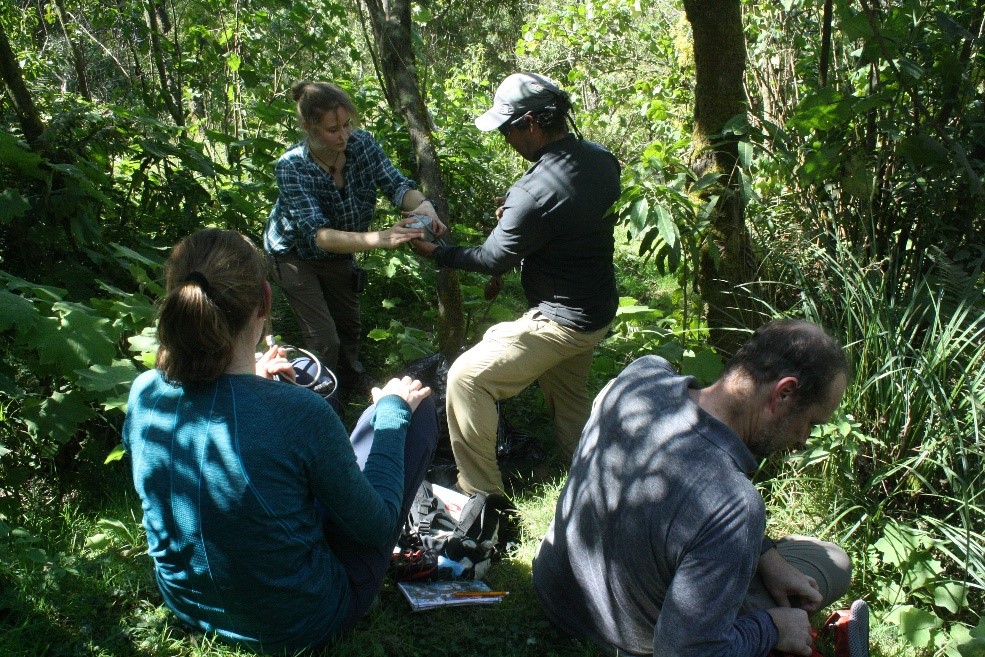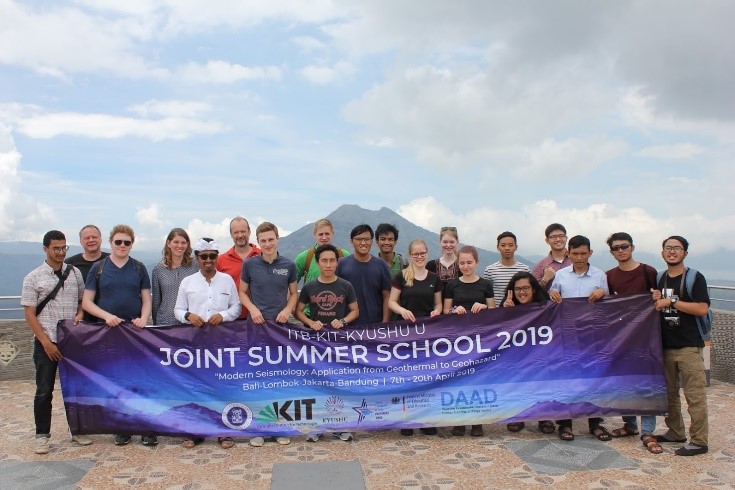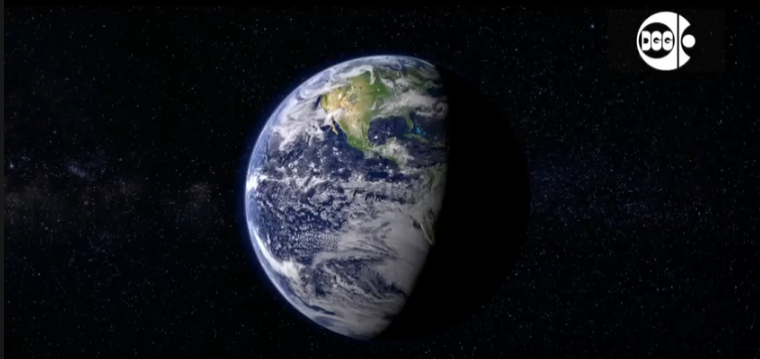What is Geophysics?
Geophysics is the physics of the earth and is therefore a subsidiary science of physics. Geophysicists use physical methods to explore the interior of the solid earth and the atmosphere, to understand the dynamic processes (e.g. earthquakes, volcanic eruptions) and to find natural resources hidden beneath the earth's surface which are needed for daily life. Geophysics is therefore a science in which physical investigation methods are applied to the terrestrial body.
What do geophysicists do?
In contrast to other natural sciences, in which research is carried out in an idealized laboratory environment, the body of investigation of geophysical research is sometimes difficult to access. Measurement expeditions take geophysicists to sometimes inhospitable and remote places. One of the most geophysically significant observations is that of elastic waves excited by earthquakes or artificially produced sources. The measurement of the earth's magnetic field and gravity field as well as electrical measurements allow conclusions to be drawn about the properties of rocks.
How do geophysicists work?
Geophysicists use supercomputers to process the large amounts of data obtained from field measurements to establish complex computer simulations for the data interpretation. For this reason, the training in computer and programming skills is an important part of the course.
Why study geophysics in Karlsruhe?
At the KIT Geophysical Institute (GPI) you will receive a profound geophysical education at an internationally renowned research institute. The relatively small amount of students create a more personal atmosphere and offer you the opportunity to take part in recent research activities at an early stage (e.g. by working as a student assistant). The GPI organizes numerous measuring expeditions every year. The GPI is also involved in numerous major international research projects. Several lecturers at the GPI have received a number of awards for their outstanding, innovative teaching.
Karlsruhe is located in the sunny Upper Rhine Graben, which has a lot to offer not only in terms of geophysics (earthquakes, geothermal energy, resources). The central location between the Black Forest, Alsace and Palatinate and the good transport connections make Karlsruhe an attractive science and student city for students from Germany and abroad. KIT's Campus South is centrally located in the downtown area and borders directly on the castle park. The KIT and the city of Karlsruhe offer a wide range of sports facilities and an opulent cultural life.

